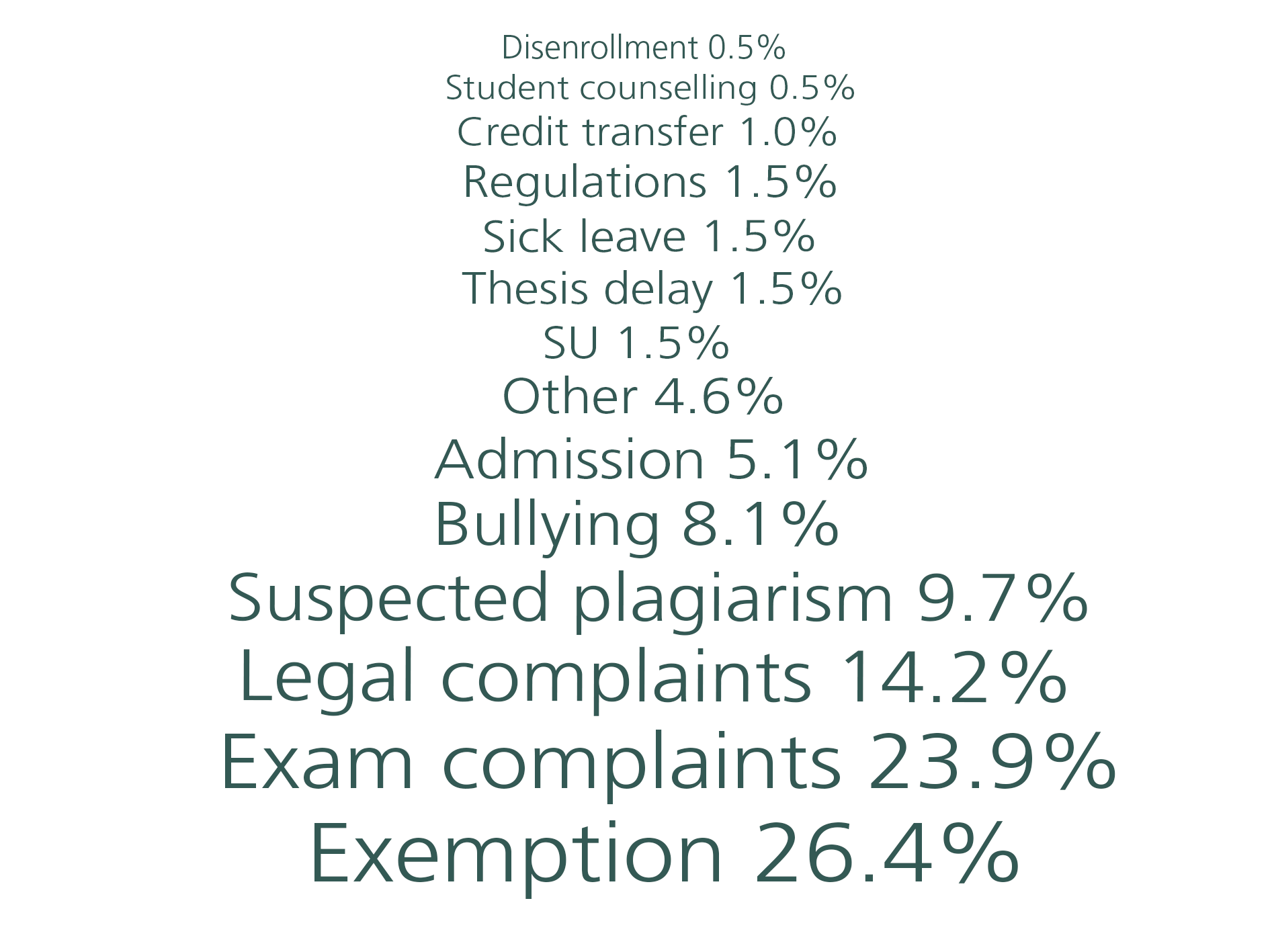(FOB 2023-18)
The Student Ambassador’s newsletter Q2 2023
The Student Ambassador’s quarterly newsletter keeps you updated on how the Student Ambassador and many others are working to improve students’ legal rights and promote dialogue and understanding between students and the University.
The 2022 annual report
On 21 June, the University Board finalised the review of the Student Ambassador’s annual report for 2022 (In Danish only).
In the meeting material (in Danish only), the Rector informed the Board that the report had been noted.
In the report, the Student Ambassador Bo Gad Køhlert recommends that all faculties, the Central Administration and the student ambassador continue to work on the themes and points of special attention summarised in chapter 3 of the report in the academic year 2023-2024.
In the months up to the board meeting, the annual report was also reviewed by the Administrative Management (AL), the Study Administration Coordination Committee (SAK), the Academic Board on Education Strategy (KUUR) and the Senior Management Team (LT).

Visit by Scandinavian colleagues and a European conference
On 18 and 19 April, the Student Ambassador hosted this year's meeting with his colleagues at the Swedish and Norwegian universities in the Scandinavian Student Ombud Network.
From 14 to 16 June, we participated in the 18th Annual Conference of the European Network of Ombuds in Higher Education (ENOHE).
Both conferences were informative and interesting. Topics such as gender-based violence, sexually transgressive behaviour and the good dialogue between the university, students and the student ombud were discussed. These are well-known topics among the members of the networks, which we also find to be particularly topical issues in the student ambassador’s office.
UCPH course to write clearer decisions and emails to students
Would you like new inspiration for how to communicate even more clearly with students regarding decisions or via email? Are you often unsure about how you can express yourself in the clearest way? Have you experienced a dialogue with a student come to a deadlock? Or do you just want to become even better at avoiding misunderstandings when you communicate in writing?
Then this full-day course is for you!
Register for the free course here.
We offer this course because student enquiries since the establishment of the Student Ambassador in 2013 have proved that, for example, reasons for rejection can sometimes be communicated more clearly. This applies to the processing of student applications, complaints and disciplinary cases alike. Read more about our insights into communication regarding decisions at UCPH in the Student Ambassador’s annual reports from 2013 to 2022.
Statement from the Ombudsman on the differences between a decision and an actual administrative activity
In June, the Ombudsman published the following statement about a student case at another university (in Danish only):
The Ombudsman summarises the situation as follows:
"A university student applied the study board for dispensation to register for a re-examination, even though the registration deadline was exceeded. The study board rejected the application on the grounds that there were no special conditions for granting a dispensation.
The student appealed against the rejection to the Danish Agency for Higher Education and Science which refused to consider the complaint on the grounds that it only processes complaints about decisions. The Agency assessed the study board’s rejection of the dispensation application to be an administrative activity and thereby not a decision.
In the Ombudsman's opinion, the rejection of the dispensation application was a decision within the scope of the Public Administration Act. Accordingly, he did not agree with the Agency for Higher Education and Science that it lacked jurisdiction to process the complaint on the grounds that the rejection of the dispensation application was a result of an actual administrative activity.
The Ombudsman agreed that conducting teaching and exams should in general be considered as an actual administrative activity. However, in this case, the study board’s decision did not concern the practice of the actual administrative activity, but whether the student should receive this activity by allowing them to take a re-exam.”
At the student ambassador’s office, we occasionally see that the differences between decisions and actual administrative activities are discussed at UCPH.
Accordingly, we recommend that you read the entire statement from the Ombudsman.
